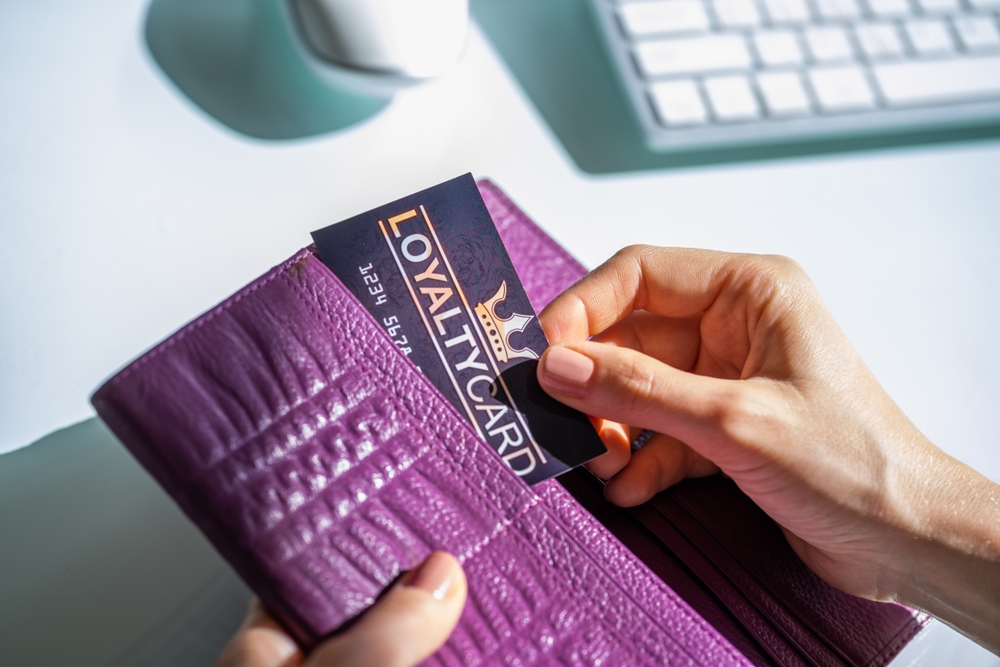If you’ve ever looked at your bank statement and wondered where all your money went, you’re not alone. Many people find themselves scratching their heads, realizing that their paycheck disappeared faster than expected. The truth is, it’s not always the big purchases that drain your wallet. Often, it’s the sneaky little habits that add up, leaving you wondering what happened. Here are 13 ways you might be wasting money without even realizing it.
1. Paying For Unused Apps

With so many apps promising to make life easier, it’s no surprise that people spend a lot on mobile software. However, it’s easy to forget about those apps that charge monthly or yearly fees. John Doe, an app developer, notes that many people don’t realize they’re still paying for apps they downloaded ages ago. It’s money going out for something you don’t even use. Take a moment to check your phone for apps you still pay for but haven’t opened in months.
The first step is identifying which apps cost money, then deciding if they’re worth keeping. Sometimes, there’s a free version with enough features to meet your needs. Don’t be swayed by the allure of premium perks if you’re not using them. It’s also crucial to be aware of automatic renewals. Set reminders for when subscriptions are due for renewal so you can cancel before you’re charged again.
2. Subscription Overload

With so many streaming services and subscription boxes available, it’s easy to lose track of what you’re signed up for. While ten dollars a month may not seem like much, it adds up if you’re paying it multiple times over. According to a study by West Monroe, the average person underestimates their subscription costs by 197%. That’s a lot of money potentially going down the drain each month. To avoid this, review your subscriptions regularly and cancel anything you don’t use.
Many people hold onto subscriptions hoping they’ll find the time to use them. Whether it’s a gym membership or a magazine subscription, it’s important to be honest about your habits. Ask yourself if you really get value out of each subscription. If the answer is no, it’s time to let it go. Tightening this spending could free up more money for things you truly enjoy.
3. Coffee Shop Visits

Grabbing a coffee on the way to work feels like a small luxury, but those cups add up over time. A daily five-dollar coffee amounts to $1,825 a year, a tidy sum for a caffeine habit. You might justify it as a necessary expense to kickstart your day, but brewing at home could save you significantly. Consider investing in a quality coffee maker and some premium beans. You can still enjoy your morning ritual without the hefty price tag.
It’s also worth thinking about how often you buy other items at the coffee shop. Pastries, snacks, or breakfast items can quickly inflate your coffee budget. These impulse buys are usually marked up compared to grocery store prices. By planning and preparing breakfast at home, you can reduce these unnecessary expenses. Small changes in your routine could lead to big savings over time.
4. Unplanned Grocery Trips

Ever gone into the grocery store for a couple of items and walked out with a cart full? This is a common trap that leads to over-spending. Without a list or a plan, it’s easy to be swayed by marketing tactics or hunger pangs. One of the best ways to curb this habit is to prepare a shopping list and stick to it. By doing so, you can avoid buying unnecessary items and stay within your budget.
It’s also wise to set a specific day for grocery shopping. Frequent trips can lead to impulse buying and repeated purchases of items you already have. Another tip is to avoid shopping when you’re hungry, as everything looks more appealing. Planning your meals in advance and checking your pantry before heading to the store can help prevent waste. This small change can have a big impact on your budget.
5. Brand Loyalty

Sticking to certain brands out of habit might feel comforting, but it can also be costly. Many people are convinced their preferred brand is superior without comparing prices or trying alternatives. Financial expert Jane Smith suggests that generic or store-brand products often match the quality of name brands. In many cases, you’re paying extra for the label rather than the product itself. Experiment with different brands to see if you can get the same quality for less.
Another tip is to take advantage of sales and discounts. Sometimes, buying a different brand on sale can lead to significant savings. Keep an eye on flyers and coupons to make the most of these opportunities. It’s also wise to compare unit prices rather than just looking at the total cost. This practice can help you make more informed purchasing decisions and stretch your dollar further.
6. Ignoring Energy Efficiency

Leaving lights on, ignoring drafts, and using outdated appliances can result in a hefty energy bill. Many people overlook these small habits, unaware of how much they add to monthly expenses. Switching to energy-efficient bulbs and unplugging devices when not in use can lead to noticeable savings. Additionally, consider investing in smart home technology, which can help manage energy use more effectively. These changes might require an upfront investment but often pay for themselves over time.
Regular maintenance of appliances, such as cleaning filters in heating and cooling systems, can also improve efficiency. Small changes like these can extend the life of your appliances and reduce energy use. If your appliances are outdated, consider upgrading to models with better energy ratings. Many utility companies offer rebates for purchasing energy-efficient appliances. With some attention to detail, you can reduce your energy bill and your carbon footprint.
7. Dining Out Frequently

Eating out is a convenient way to enjoy a good meal without the hassle of cooking, but it can be an expensive habit. According to a study by the USDA, the average household spends over $3,000 annually on dining out. Cooking at home not only saves money but also allows you to control the quality and portion size of your meals. Planning meals and cooking in batches can reduce food waste and save time. By learning a few basic recipes, you can enjoy tasty meals without the restaurant price tag.
Dining out can also lead to additional expenses such as tips, drinks, and parking fees. These costs can significantly increase the overall expense of a meal. It’s also worth considering the health benefits of home-cooked meals, as you’re in control of the ingredients used. With a little planning, you can reduce dining expenses and enjoy more meals at home. Inviting friends over for a potluck can also be a fun, budget-friendly social activity.
8. Not Taking Advantage Of Discounts

Many people overlook discounts and coupons, leaving potential savings on the table. With a little effort, you can find ways to reduce costs on everything from groceries to household items. Sign up for newsletters from your favorite stores or download apps that offer coupons. Some credit cards also offer cashback on purchases, allowing you to save a little each time you shop. Being proactive about discounts can help you stretch your budget further.
Another way to maximize savings is by timing your purchases. Many stores have regular sales, so waiting for these events can lead to significant discounts. Look for clearance items or out-of-season sales to save even more. Buying in bulk can also reduce costs, provided you have the storage space. With a little patience and planning, taking advantage of discounts can become a rewarding habit.
9. Failing To Track Spending

Do you know where every dollar goes each month? If not, it might be time to start tracking your spending. Many people avoid this task because it seems tedious, but it’s crucial for understanding your financial habits. There are numerous apps available to help manage your budget and provide insights into your spending patterns. By regularly reviewing your expenses, you can identify areas where you might be overspending.
Tracking your spending can also highlight trends you hadn’t noticed before, such as how much you spend on dining out or shopping. This information can empower you to make informed decisions and set realistic financial goals. Being aware of your spending habits can also help reduce stress and give you a sense of control over your finances. With the right tools and a bit of discipline, tracking your expenses can become a simple and effective habit. Ultimately, it allows you to plan better and save more.
10. Buying In Bulk Without Planning

Bulk buying can be a great way to save money, but only if done correctly. Many people get carried away by the savings and end up buying items they don’t need or can’t use before they expire. It’s important to focus on non-perishable items or things you use regularly. Before heading to the store, make a list of what you actually need. This way, you can avoid wasting money on items that will be thrown away.
Another aspect to consider is storage space. If you don’t have the room to store bulk items, it might be better to buy smaller quantities. Buying in bulk can lead to clutter, which can make it hard to find and use what you’ve purchased. Plan your purchases around your storage capacity to maximize savings without creating chaos at home. Being strategic with bulk buying can lead to great savings and less waste.
11. Ignoring Loyalty Programs

Loyalty programs can offer great rewards, yet many people fail to take full advantage of them. By signing up for these programs, you can earn points towards discounts or free items. It’s a simple way to save money, especially if it’s for a store you frequent. Make sure to keep track of your points and use them before they expire. The benefits can add up over time, leading to significant savings.
It’s also worth noting that some loyalty programs offer exclusive deals and early access to sales. These perks can help you save even more money on items you were planning to purchase anyway. Review the terms of each program and maximize the benefits they offer. Some programs even offer birthday rewards or special discounts throughout the year. By paying attention to these opportunities, you can save while still enjoying your favorite products.
12. Impulse Buying

Impulse purchases can be a major drain on your finances, often providing only temporary satisfaction. Stores encourage this behavior by placing tempting items near checkouts or having attractive displays. To combat this, practice mindful shopping by taking a moment to consider whether you really need or will use an item. Implementing a 24-hour rule can help you avoid unnecessary purchases; if you still want the item after a day, it might be worth buying. This pause can often reveal that the impulse was fleeting.
Another way to curb impulse buying is to set a budget before you shop. Determine how much you’re willing to spend and stick to it. Avoid using credit cards for impulse buys, as this can lead to overspending. By using cash or a debit card, you’re more likely to remain within your budget. Becoming aware of your spending triggers can also help you make better purchasing decisions.
13. Skipping Regular Maintenance

Ignoring routine maintenance on your car, home, or appliances can lead to costly repairs down the road. Many people put off these tasks because they seem unnecessary or time-consuming. However, regular maintenance extends the life of your belongings and prevents larger issues from developing. Set reminders to perform regular checks, such as changing your car’s oil or cleaning your air filters. Investing a little time and money now can save a lot in the long run.
It’s also beneficial to have a maintenance checklist for your home. Tasks like cleaning gutters, inspecting roofs, and servicing HVAC systems can prevent damage and save on repair costs. Keeping everything in good condition not only avoids unexpected expenses but also preserves the value of your assets. Regular maintenance can provide peace of mind and reduce financial stress. Establishing this habit is a smart way to protect your investments and avoid unnecessary spending.
This article is for informational purposes only and should not be construed as financial advice. Consult a financial professional before making investment or other financial decisions. The author and publisher make no warranties of any kind.








